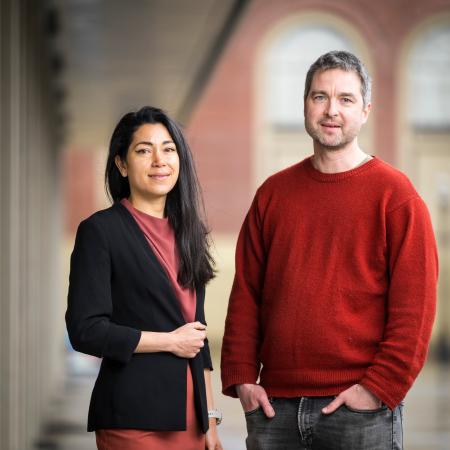Sally Hacker, a biology professor for the College of Science and four other OSU scientists received two-year grants from Oregon Sea Grant totaling $1.15 million.
Hacker’s project, entitled “From genes to dunescapes: genetic and ecological consequences of a new ‘super beach grass’ hybrid for U.S. Pacific Northwest coast ecosystem services,” will examine a new hybrid beach grass formed between two invasive beach grasses on the Pacific Northwest coast. The hybrid has characteristics that suggest it could be a “super beachgrass” with hybrid vigor.
Hacker and her team will explore how the hybrid grass interacts with other species and project how it might affect coasted protection, carbon sequestration and biodiversity of Pacific Northwest dunes. This information will help decision makers determine policy responses to the new hybrid and determine the scope of its hybridization.
This grant comes from congressionally-appropriated funds Oregon Sea Grant receives every two years that are then awarded via a competitive process to scientists at Oregon universities who are studying ocean and coastal issues important to the region and the nation.
For 2020-22, Oregon Sea Grant awarded all of that funding to researchers in four colleges at Oregon State. Each project will receive about $230,000.
“The results of this research will help agencies and other stakeholders manage Oregon’s critical natural resources and expand our understanding of our coastal environment,” said Shelby Walker, the director of Oregon Sea Grant.
The four other recipient project titles and lead researchers are:
- “Quantifying and communicating the impacts of groundfish bottom trawling on deoxygenation and nutrient fluxes off Oregon,” Clare Reimers, College of Earth, Ocean, and Atmospheric Sciences.
- “PBDEs/methylmercury and immune function in non-stranded male California sea lions,” Sarah Rothenberg, College of Public Health and Human Sciences.
- “Determining habitat suitability under climate change and ocean acidification for oysters in Oregon’s estuaries,” George Waldbusser, College of Earth, Ocean, and Atmospheric Sciences.
- “How do beach grasses build dunes? Exploring foredune stability with native and invasive grasses to guide management practices on the Oregon coast,” Meagan Wengrove, College of Engineering.
For more information on Oregon Sea Grant, click here.



